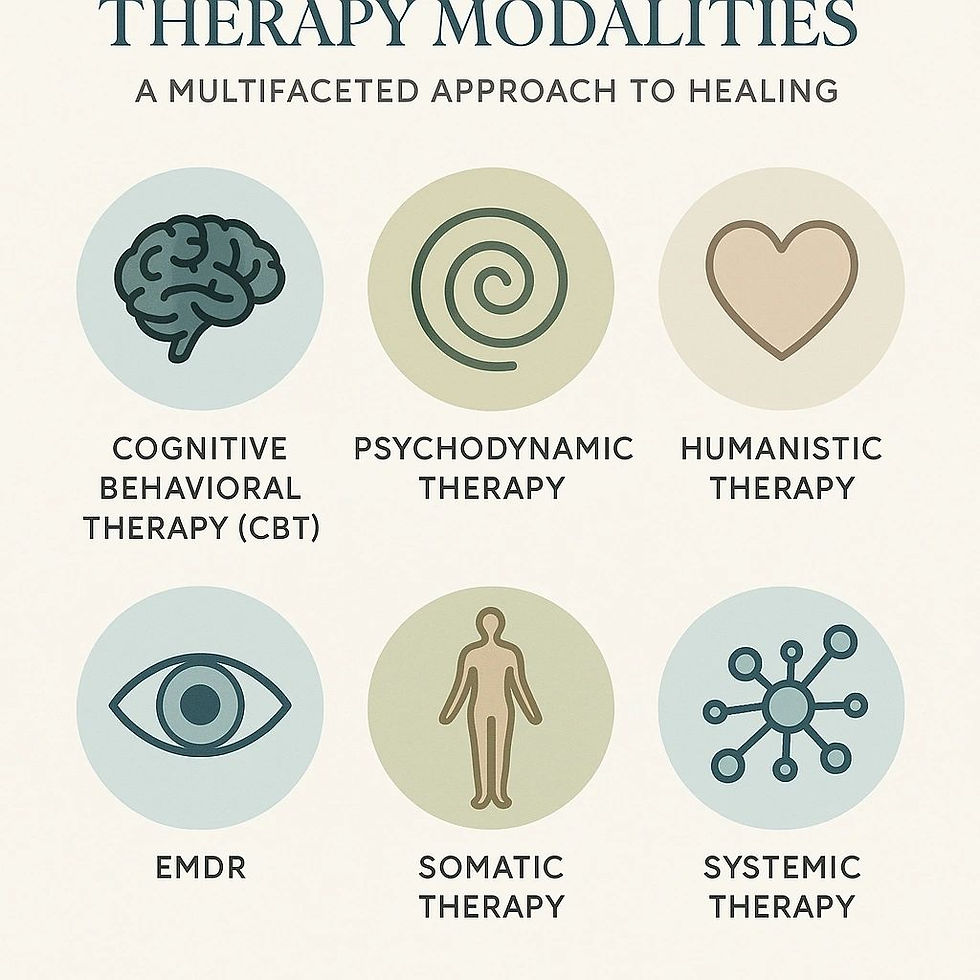How Music Affects Your Mood (And Your Brain): The Power of Sound
- michelleluna
- May 14
- 4 min read
We’ve all been there—feeling down, and then hitting play on a favorite song that instantly lifts our spirits. Or, maybe you’ve found yourself overwhelmed with emotions, and the right piece of music seems to put everything into perspective. But what is it about music that has such a profound impact on our mood and mind?
The connection between music and emotions is deeply rooted in the way our brains process sound. Music doesn’t just move us emotionally; it can physically alter our brain chemistry, improve our mental well-being, and even improve cognitive performance.
Let’s dive into how music affects your mood, your brain, and why it has such a lasting impact.
1. The Science of Music and the Brain
Our brains are wired to respond to sound. When we listen to music, it activates several areas of the brain, including:
The limbic system: This is the part of the brain responsible for processing emotions. That’s why music can evoke such powerful feelings, whether it’s joy, sadness, nostalgia, or excitement.
The prefrontal cortex: Responsible for higher cognitive functions like decision-making and problem-solving. Music can enhance your ability to concentrate and focus, especially during tasks like studying or working.
The motor cortex: This area controls movement, which is why music with a strong rhythm can make us tap our feet, dance, or even feel motivated to exercise.
In short, music taps into several parts of our brain, making it a powerful tool for influencing our mood, cognitive abilities, and even physical movement.
2. How Music Can Enhance Your Mood
Music has the remarkable ability to instantly change how we feel. Here's how:
🎶 Feel-Good Hormones
When you listen to music you enjoy, your brain releases a cocktail of feel-good chemicals:
Dopamine: Often called the "happy hormone," dopamine is released in response to pleasurable activities, including listening to music.
Endorphins: These are the body’s natural painkillers and mood boosters, often triggered by upbeat music or songs that we associate with positive memories.
Oxytocin: Known as the "love hormone," oxytocin promotes feelings of bonding and connection, especially when music is shared in social settings (like at a concert or with friends).
🎶 Music and Emotional Regulation
Music allows us to express emotions we might not otherwise be able to put into words. It serves as a form of emotional regulation, providing an outlet for us to process and release difficult feelings. For example:
Sad music can provide comfort by allowing us to connect with our emotions and feel understood during tough times.
Upbeat or energizing music can help lift our mood, reduce stress, and create positive energy when we need a boost.
3. The Therapeutic Benefits of Music
Beyond simply boosting our mood, music therapy has been shown to have several therapeutic benefits. Here’s how music is used to improve mental and physical health:
Stress Relief: Slow, calming music can lower levels of cortisol, the hormone associated with stress. Listening to soothing melodies can help relax the body and calm the mind, making it a great way to unwind after a long day.
Improved Sleep: Studies have shown that listening to relaxing music before bed can help improve sleep quality. It reduces anxiety and creates a calm environment, making it easier to fall asleep and stay asleep.
Mental Health Benefits: Music has been used in therapeutic settings to help manage depression, anxiety, and even PTSD. It encourages emotional expression, improves self-awareness, and fosters a sense of connection with others.
Pain Management: Some hospitals use music therapy to help manage chronic pain and reduce the need for medication. Music can distract patients, reduce pain perception, and promote relaxation during medical procedures.
4. Music’s Impact on Cognitive Performance
Music isn’t just for mood management; it can also help with cognitive function. Here's how:
🧠 Improved Focus and Productivity
Certain types of music, particularly instrumental or classical music, have been shown to enhance focus, memory, and concentration. If you’re studying or working on a complex task, music can:
Help you concentrate by reducing distractions.
Stimulate brain activity and improve problem-solving skills.
Increase motivation and energy levels, especially if you need to power through long work sessions.
🧠 Memory Boosting
Music has also been linked to enhanced memory and learning. Researchers have found that listening to music while studying can improve retention, especially for tasks that involve memorization. For example, if you associate certain songs with particular lessons or subjects, your brain may recall the information more easily when you hear those tunes again.
5. Music’s Role in Social Connection
One of the most powerful aspects of music is its ability to bring people together. Whether you're at a concert, dancing with friends, or singing along to your favorite playlist, music fosters a sense of community and shared experience.
Bonding: Music is often a communal activity that connects people, creating shared experiences that strengthen relationships and social bonds.
Cultural Connection: Music also plays a key role in cultural expression. It allows us to connect with our heritage, learn about others’ cultures, and understand different perspectives.
When we listen to music together, it can promote empathy, increase feelings of belonging, and improve social interaction.
6. The Power of Personalized Playlists
One of the reasons music affects our mood so profoundly is because it’s highly personal. A song that lifts one person’s spirits might not have the same effect on someone else. Here are some tips for creating the perfect playlist for every mood:
For relaxation: Choose slow, ambient, or classical music to calm your nerves.
For energy: Go for upbeat pop, rock, or dance tracks that get you moving and motivated.
For focus: Instrumental music or nature sounds can help you stay concentrated without distractions.
For emotional expression: Create a playlist of songs that mirror your current feelings or help you process emotions.
Having a playlist for specific moods or tasks is like having a personal soundtrack for your life!
Final Thoughts: Let Music Be Your Guide
The power of music goes far beyond entertainment—it can change the way we feel, think, and even act. Whether you’re looking to lift your mood, focus your mind, or relax after a long day, music is a tool that can help guide you through life’s emotional ups and downs.
So next time you're feeling stressed, sad, or in need of inspiration, try hitting play. Your brain—and your mood—might just thank you for it.









Comments